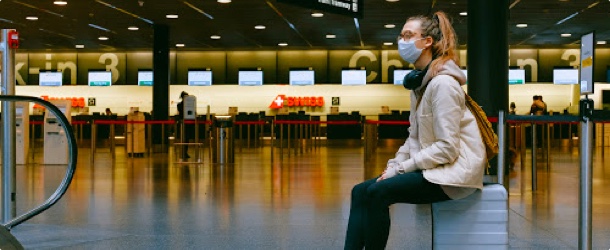Manage your account on the go with the SBI Card Mobile App
-
New User?
Shop essentials - lets shop in a new way
 7 min read
7 min read
The shock from the stagnant travel industry, which accounts for 10% of the global economy, can ripple to the remotest corners of the world. Each time a person takes a trip, it sets off a domino effect of consumption that directs dollars to airlines, hoteliers, restaurateurs, taxi drivers, artisans, tour guides, and shopkeepers, to name a few. In all, the tourism industry employs 300 million people; especially in developing countries, these jobs can represent pathways out of poverty and opportunities for cultural preservation. Now a third of all tourism jobs are at risk, airlines around the world say they need as much as $200 billion in bailouts, and reduced travel expenditures both business and leisure puts the $1.7 trillion industry at risk.
While shelter-in-place orders vary from country to country and within each country, one aspect of recovery is consistent across the board: International travel will be among the last sectors to reignite. What will travel look like in the near term, and how will it evolve for good? Those are questions that affect us all, whether we’re itching to get back to work or simply to get going.
Key coverage
- Tourism Slump Has Holiday Destinations Scrambling
- Cruises Are Coming Back. Here’s What They’ll Look Like
- Considering a Vacation Rental? Here’s What to Know Before You Travel
Why it matters
We may not know much about when it will be safe to travel internationally again, or how soon after that countries will begin to lift travel restrictions. What we do know is that travel will be fundamentally different on the other side.
Airlines, airports, cruise lines, and hotels will all need to develop and adhere to new guidelines about social distancing, cleaning, and food service. Transparency, which hasn’t been the industry’s strongest suit—think ineffective travel insurance policies and cryptic passenger protection rules—will become essential. And companies will need to shift pricing to accommodate fewer travelers at once, which might make your summer vacation a costly proposition, if it happens at all.
Look to the wealthiest to set the tone for the future of nonessential travel. They can circumvent many of the pain points post-pandemic, be it through private aviation or full-hotel buyouts that preclude the need for shared space. The solutions their money can buy may prove scalable, and their requests may reflect broad consumer sentiment, though even the richest will be limited to domestic travel for the foreseeable future.
Related posts
- ©2026
- Do Not Disturb
- Most Important Terms & Conditions
- Offer Terms & Conditions
- Security
- Forms Central
- Sitemap
- Disclaimer
- Fair Practice Code
- Credit Bureau FAQs
- Privacy Policy/Notice
- PoSH Policy
- Order of Payment Settlement
- Cardholder Agreement
- Usage Agreement
- Customer Grievance Redressal Policy
- Customer Notices
- Tokenisation
- Procurement News
- ODR Portal Link & Circular for Shareholders
- Policy for the issuance and conduct of credit cards
- Grievance Redressal
"SBI Cards and Payment Services Limited” was formerly known as “SBI Cards and Payment Services Private Limited"
Site best viewed in browsers I.E 11+, Mozilla 3.5+, Chrome 3.0+, Safari 5.0+ on all desktops, laptops, and Android & iOS mobile/tablet devices
 Previous Post
Previous Post



